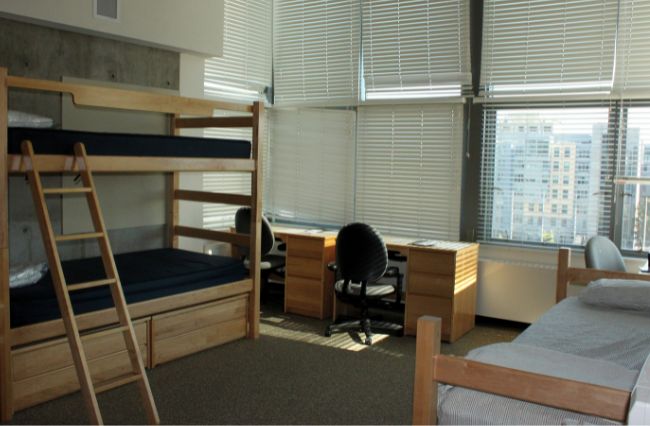In January 2023, just as many Chinese students were still enjoying the Lunar Year, China’s Ministry of Education suddenly announced that overseas qualifications obtained through online courses would no longer be recognised.
This policy change has resulted in many Chinese students having to quickly return to Australia for the beginning of the semester during an unprecedented rental crisis, that had led to soaring rent costs and long queues for viewings.
Last year, Australia was home to over 600,000 international students. After China’s policy change, an estimated 50,000 Chinese students were also expected to return to Australia this year.
International students now had to face not only the usual language barrier and cultural differences of living in another country but also the struggle of quickly trying to find a place to live during a rental crisis.
Yingqi Xiong, a finance student at the University of Sydney, is one of the Chinese students who have been affected by the Chinese Ministry of Education’s decision.
“The price of renting an apartment in Sydney is now AUD$100-AUD$200 more expensive than before, and there are only a limited number of places available, so it’s completely impossible to rent the ideal apartment,” she told upstart.
“You can’t rent a house, the price goes up, there’s no housing, it’s all up for grabs, and the landlord haggles over prices,” she added.
The new requirement announced by China came as a shock to Xiong, and she hoped that the decision change would be reversed so she could finish her final semester in China.
“Because I only have my last semester of graduate school left, it’s very much not worth it for me to come back. I’m going to have to rent an apartment for those three or four months,” she said.
Chengyu Hao, the vice president of uhomes, a company that helps international students find their ideal accommodation, said the policy change made things very challenging.
“This policy change was very sudden and there was no period of adaptation and transit.”
“Our goal is then to find a safe place for international students, at the best possible price, to ensure they get the best deals and incentives,” he told upstart.
Hao explained that rental prices increased significantly in a short period of time due to the surge of students in the market.
“Our inquiries and sales have increased a lot in [of the policy change], with each consultant serving an average of more than 50 groups of clients per day,” he said.
“We’ve expanded into different property types, including student accommodation, apartments, houses and service hotels.”
He added that some new properties are concentrated in Melbourne and Sydney, while other cities aren’t expected to have much room in 2023 and 2024. Because of this, Hao estimated that students will begin to book rooms even earlier compared to previous years as rental prices increase, and available properties become scarcer.
“International students are rapidly returning to Australian campuses and numbers are set to increase rapidly in the coming years.”
“With the construction of some new apartments, these problems will be gradually solved within 2-3 years.”
For student, Yingqi Xiong, not only did she encounter challenges in renting an apartment, but personal plans such as trips with her family also had to be cancelled. She also had to leave a relationship behind suddenly.
“I had to leave my boyfriend because he had to continue to live and work in the country, which was very challenging and sad for me to leave.”
As to how long Chinese students in Australia will face similar rental challenges, Hao said it should clear up in a few years.
Article: Yiming Liang is a third-year Bachelor of Media and Communications (Public relation) student at La Trobe University.
Photo | UC Berkeley Housing ~ Unit 1 : Slottman Building Dorm Room By Flickr available HERE and used under a Creative Commons Licence. The image has not been modified.







